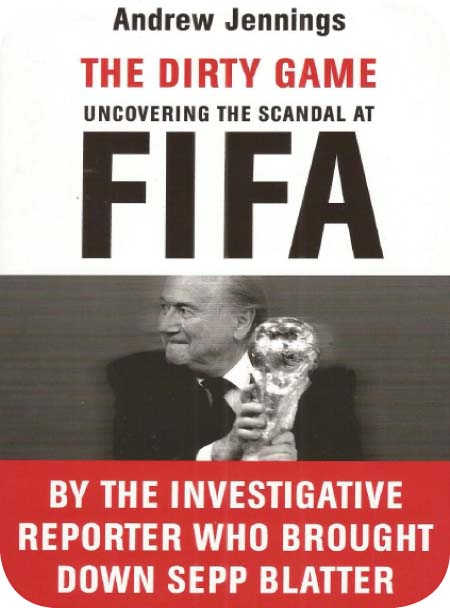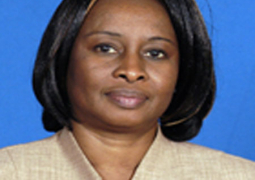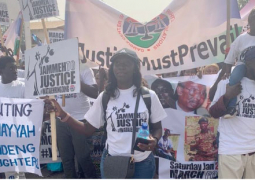
This is a book hot from the press, just 3 months old, and it is very explosive. Written by a BBC award winning journalist, Andrew Jennings, the book uncovers the web of corruption that has rocked FIFA, the world football body. Indeed, the author has been researching and writing about FIFA scandals since the 1990s, and he is so persistent in uncovering the sordid FIFA story that the suspended FIFA outgoing president Sepp Blatter banned Jennings from his press conferences, p.304. It was Jennings who furnished the American FBI the dossier from his long years researching and investigating FIFA scandals, which led eventually to the arrest in Switzerland last May, (p.1,2). The author is therefore well placed to write about the corruption in FIFA.
The book is divided into 20 chapters, but they are short enough to keep the reader in suspense and focus. The first chapters set the stage for the graft in which FIFA officials are currently embroiled: the author reveals that it was during the time of Joao Havelange, the Brazilian who led FIFA from 1974 to 1998, that the world football body began its ugly descent into graft and scandals, p.10. Here the author seeks to compare the FIFA dealers and wheelers to the Italian mafia; a tight-knit cabal who protect each other and are ready to flay, even slay, to have their way. It is obvious from the book that the FIFA scandals are mainly centred on cash.
According to the author, there is plenty of money coming into the coffers of the associations from sponsorship deals with partners such as Coca Cola, Adidas, and VISA, p.9, who pour billions of dollars into the FIFA coffers in sponsorship deals. Another way to the cash mountain in FIFA is the bribes that countries have paid to host the World Cup, held every four years.
In chapter six, the author reveals how countries had to literally buy the votes that gave them the rights to host the World Cup. The author reveals on p.80 how the votes were bought for Germany to win the rights to host 2006, denying South Africa. Further into this chapter, the authors also reveals how South Africa too won the rights to host the 2010 World Cup but not before allegations of bribery against them for also bribing their way. Now both Qatar and Russia are to host the 2022 and 2018 World Cups and they are both accused of buying the votes.
But who are the corrupt in FIFA? According to the author, Blatter leads the pack, followed by some members of the very powerful Executive Committee, which, if the author is to be believed, works like a brotherhood: in total secrecy, with a strong ethic of secrecy and mutual support. They have the laager mentality. Some of the Executive members have been accused of and indicted for re-selling World Cup tickets in the black market at inflated prices, p.98.
In total, Jenning successfully paints a picture of a wholly rotten world body. FIFA ‘an organised crime family’ p.302, is rotten to the core, according to Jennings. In fact, he is so revolted by it all that he suggests a few ways forwards: change the name of FIFA to World Football Union, and make sure the secret meetings of its Executive committee are streamed live on the internet to bring a modicum of transparency.Of course, the reader must know that these revelations are as yet accusations which only a court of law could confirm or deny.
I am afraid if you read this book, your beautiful game will no longer appear so beautiful. The current suspension of Blatter and his cohort, and the arrests in May, attest to the plausibility of Jennings’ premise that world football needs a radical change to improve its image. Football lovers should buy and read this book.
Available at Timbooktoo, tel 4494345.



